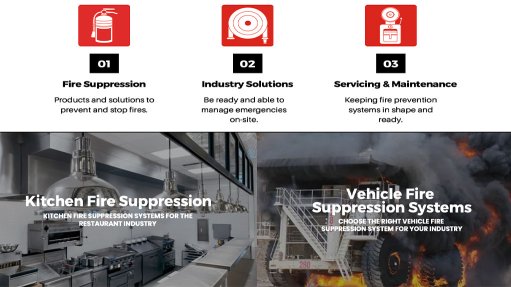Caltex Delo paves the way for heavy duty synthetics
Synthetics deliver on performance and lower emissions.
As fuel prices rise, delivery deadlines tighten and truck drivers become scarce, fleet operators are seeking ways to streamline operations and reduce costs. This means more than just focusing on the initial purchase price of the truck, requiring instead a reduction of the total cost of vehicle ownership. Fleet operators want improved durability in their trucks to limit turnover and to lower capital expenditures over the long term. They need greater reliability to help increase overall fleet productivity and greater efficiency from their vehicles to decrease operating costs and fuel spends.
Hardware designs have evolved significantly over the last 30 years to keep up with the demands of increasingly stringent regulations. With each change, new demands have been placed on the lubricating oil. With tighter tolerances between components, today’s advanced engine technologies achieve greater efficiency, but are more sensitive and run much hotter than previous designs. When the engine runs hotter, so too does the oil, which has prompted new demands on oil quality.
Like most things, too much heat can stress the oil, making it more vulnerable to breakdown, which can cause it to degrade. Severely oxidised oil will become much thicker than when the oil was new and can also become acidic and attack internal components like bearings and bushings. Oxidised
oil also contributes to deposit formation in places like the turbocharger and power cylinder. Elevated temperatures can also cause a portion of the oil to evaporate, which can impact oil consumption and further accelerate degradation.
Of course, engines and the oils that protect them must be robust not only at elevated temperatures, but also at the very low temperatures encountered upon winter startup. Fluids that can handle these wide temperature swings have what oil formulators call a high “viscosity index”. Increasingly, companies are turning to synthetic oils such as Caltex Delo that, when formulated with high performance additives, deliver on the high stability, low volatility and high viscosity index that today’s operators demand.
It’s helpful to understand the difference between conventional and synthetic oils. Conventional oils are made from refined crude oil and undergo further processing to remove harmful impurities and to further tailor their properties. In contrast, synthetic base oils are purpose-built chemicals synthesised to deliver high performance. Synthetic base oils are generally less volatile and more chemically stable than conventional base oils, yet they are particularly robust at low temperatures as well.
Of course, it is not just the synthetic base oil that delivers these properties, but also the additive package that is unique to each producer. The greatest potential for high performance comes from the optimal combination of synthetic oils and additive formulation expertise. The properties we often attribute to synthetics are the result of the additives working with the base oil to produce the desired performance. More simply stated, not all synthetics are created equal.
With the trend toward smaller, technologically advanced heavy-duty engines, we have seen a parallel trend toward lower viscosity lubricants. This is leading logically to the wider use of synthetic blends and, ultimately, full synthetic engine oils. With the right additive formulations, synthetic lubricants will help deliver on the goals of lower emissions and high fuel economy towards which truck manufacturers have been working. Fleet managers would do well to understand the benefits of synthetics and to prepare for this transition as they upgrade their fleets.
Article Enquiry
Email Article
Save Article
Feedback
To advertise email advertising@creamermedia.co.za or click here
Announcements
What's On
Subscribe to improve your user experience...
Option 1 (equivalent of R125 a month):
Receive a weekly copy of Creamer Media's Engineering News & Mining Weekly magazine
(print copy for those in South Africa and e-magazine for those outside of South Africa)
Receive daily email newsletters
Access to full search results
Access archive of magazine back copies
Access to Projects in Progress
Access to ONE Research Report of your choice in PDF format
Option 2 (equivalent of R375 a month):
All benefits from Option 1
PLUS
Access to Creamer Media's Research Channel Africa for ALL Research Reports, in PDF format, on various industrial and mining sectors
including Electricity; Water; Energy Transition; Hydrogen; Roads, Rail and Ports; Coal; Gold; Platinum; Battery Metals; etc.
Already a subscriber?
Forgotten your password?
Receive weekly copy of Creamer Media's Engineering News & Mining Weekly magazine (print copy for those in South Africa and e-magazine for those outside of South Africa)
➕
Recieve daily email newsletters
➕
Access to full search results
➕
Access archive of magazine back copies
➕
Access to Projects in Progress
➕
Access to ONE Research Report of your choice in PDF format
RESEARCH CHANNEL AFRICA
R4500 (equivalent of R375 a month)
SUBSCRIBEAll benefits from Option 1
➕
Access to Creamer Media's Research Channel Africa for ALL Research Reports on various industrial and mining sectors, in PDF format, including on:
Electricity
➕
Water
➕
Energy Transition
➕
Hydrogen
➕
Roads, Rail and Ports
➕
Coal
➕
Gold
➕
Platinum
➕
Battery Metals
➕
etc.
Receive all benefits from Option 1 or Option 2 delivered to numerous people at your company
➕
Multiple User names and Passwords for simultaneous log-ins
➕
Intranet integration access to all in your organisation



















